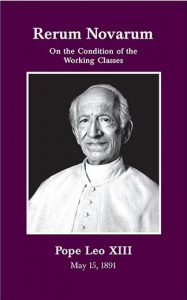“I was hungry and you gave me food.”—Jesus

Some of the most important commemorative celebrations take place in Ottawa’s beautiful Notre Dame Cathedral.
We will joyfully mark three events there on 26 September at 3:30 PM:
- the 50th anniversary of Development and Peace (CCODP),
- the 70th anniversary of the Consecration of Canada to the Immaculate Heart of Mary,
- and the 150th anniversary of Canada’s Confederation.

Notre Dame Cathedral Basilica – Ottawa. Souce: ottawaclassicalchoir.com
Cardinal Lacroix will give the homily at this Solemn Mass. More than 80 bishops will attend. We hope that many others will too!
The Canadian Catholic Organization for Development and Peace–Caritas Canada – is the natural child of two millennia of Catholic social teaching. Jewish tradition and Christ’s lessons set high standards for society’s response to the needy and downtrodden. The word shalom means peace, but also safety, prosperity, and justice.
The prodigies of later generations, notably Augustine of Hippo and Thomas Aquinas, further discerned how humanity is to treat our fellows. Pope Leo XIII’s 1891 encyclical Rerum novarum was the first systematic reflection on the Church’s teaching about peace and justice.

Source: acatholicreader.com
Since then, several popes have expanded on the theme. Saint John Paul II wrote that Catholic social action “rests on the threefold cornerstones of human dignity, solidarity, and subsidiarity.”
Subsidiarity is the principle that problems should be solved by the most local level of society that can effectively do so. Pope Benedict XVI defined the purpose of social action as “simply to help purify reason and to contribute, here and now, to the acknowledgement and attainment of what is just.”

Source: catholicreadingproject.blogspot.com
The Canadian Conference of Catholic Bishops founded CCODP in Canada’s Centennial year, 1967. It was a fruit of the Second Vatican Council, which had concluded two years earlier. The charity was to serve all people, regardless of race, creed, or ideology.
The goals of the initiative were
1. information and education (in Canada) about global development,
2. financing of community development projects,
and 3. providing funds for emergency needs.
Its structure also reflected the post-Conciliar view of the Church as a movement of the laity and clerical hierarchy working together. The concept of development as a form of aid, derived from Pope Paul VI’s 1967 encyclical Populorum Progressio, was highly innovative for its time.

Source: youtube.com
The first Share Lent Campaign in 1968 raised $1.35 million for 77 projects in 32 countries. CCODP is a member of the Caritas Internationalis confederation of 164 Catholic aid groups operating in more than 200 countries. CCODP also partners ecumenically with other faiths to reach the needy.
In 2015, CCODP received donations of $16.4 million and government funding of $16 million. This supported its development programs, emergency relief, and education campaigns. Its program for democracy and citizen action in the Democratic Republic of Congo reached 1.5 million people.

Source: devp.org
It ran workshops on eliminating violence against women in Afghanistan, reaching 227 women and 197 men. Its social solidarity economy program in Haiti created more than 600 jobs, of which 81% are held by women.
Over its history, CCODP has supported 15,200 local initiatives in agriculture, education, community action, and advocacy for human rights in 70 countries.
I witnessed the good works of CCODP first hand during my trip to Ethiopia in 2013. I saw several projects involving drought recovery and improved farming techniques.
Our delegation also spoke to the people who had benefited from the programs. At every location we visited, the local population welcomed us with hand-clapping, singing, and sincere thanks.
The Mass to mark the Golden Jubilee of CCODP will include a re-consecration of Canada to the Immaculate Heart of Mary. I look forward to seeing you there.




Peter Bisson, SJ
Posted at 19:36h, 25 SeptemberThank you, Terry!